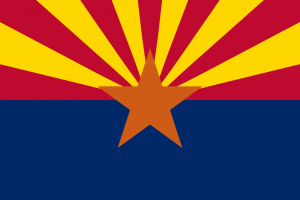 A recently defeated bill in the Arizona state legislature proposed to ban social justice coursework in higher education. The bill follows a state law passed in 2010 and challenged by CBLDF specifically targeting Tucson’s acclaimed Mexican American Studies program. Although defeated, the new bill reveals troubling and persistent divisions between lawmakers and educators on how to teach about marginalized populations.
A recently defeated bill in the Arizona state legislature proposed to ban social justice coursework in higher education. The bill follows a state law passed in 2010 and challenged by CBLDF specifically targeting Tucson’s acclaimed Mexican American Studies program. Although defeated, the new bill reveals troubling and persistent divisions between lawmakers and educators on how to teach about marginalized populations.
House Bill 2120 would have banned higher education courses that “advocate solidarity or isolation based on ethnicity, race, religion, gender or social class instead of the treatment of pupils as individuals” and “promote division, resentment or social justice toward a race, gender, religion, political affiliation, social class or other class of people.” Universities and community colleges in violation of the law could lose up to 10% of their state funding.
The bill mirrors Arizona Revised Statute § 15-112, the 2010 law that targeted the acclaimed MAS program in Tucson for allegedly fomenting racial hatred. Passage of the law led to the dissolution of the program despite independent assessment that found the program did no such thing and increased student success, especially among Latino students.
Republican representative Bob Thorpe proposed the new legislation despite ongoing First and Fourteenth Amendment legal challenges to Arizona Revised Statute § 15-112. As The Arizona Republic reports, Thorpe argues that “Taxpayers should not have to be paying for classes that discriminate. This is drawing a line in the sand that says, ‘Higher education: If you want to have classes that teach resentment between individuals, you should have to fund them.'”
Republican Representative Paul Boyer, chair of the House Education Committee, refused to grant HB 2120 a hearing. The bill is dead for now, but Thorpe has already tried to resurrect it once — and was rebuffed by Boyer a second time. Thorpe claims he will try again before end of the current legislative session.
Many are concerned Thorpe will use a legislative backdoor called a “strike everything” or “striker” amendment. In such a move, an unrelated bill is gutted — basically, legislators “strike everything” from the bill — and the language of a stalled bill such as Thorpe’s is put in its place. It’s the legislative equivalent of a cuckoo bird laying its eggs in another bird’s nest and a way by which legislators can bypass the public hearing stage.
CBLDF is among the organizations that challenged the constitutionality of Arizona Revised Statute § 15-112. The law was challenged under the First and 14th Amendments (equal protection). The Ninth Circuit determined that one section of the law was clearly in violation of the First Amendment. They further determined that the other subsections raised some constitutional concerns under both amendments. The Ninth Circuit’s decision didn’t strike down the law — they sent the decision back to district court for reconsideration, and the trial will likely commence in the coming weeks.
CBLDF took such action because any legislation that bans books based on the ethnicity of their creators or subject matter is just as likely to ban comic books for the same reason. If images of works by Frida Kahlo, Diego Rivera, or other Chicano artists can be banned, it doesn’t seem so far fetched that works by the Hernandez Brothers would become part of Arizona’s censorship spree. More significantly, legislation that serves to curb educational inquiry into difficult topics reduces society’s ability to intelligently and honestly cope with them, creating more, rather than less division. In the current era of cultural division, the dedication to proposing such bills is reason for pause.
Read CBLDF’s previous coverage of Arizona’s attacks on ethnic studies:
- Ninth Circuit Court Finds Constitutional Problems with AZ Law that Censored Mexican American Studies Program
- Because of Arizona Ban, Ethnic Studies Programs Expand Around Country
- AZ Superintendent of Public Instruction Under Fire for Anonymous Online Posts
- CBLDF Joins Amicus Brief Opposed to Arizona Law that Led to Ban of Mexican American Studies Books
- TUSD’s Lift of Book Ban Draws Ire of Arizona Department of Education
- Tucson School District Lifts Ban on Mexican American Studies Books
- Embattled Mexican American Studies Program Finds Another Way
- Court Upholds Law that Led to Tucson Book Ban
- Move by Tucson School Board May Mean Overturn of Book Ban
- Effort to Return MAS Books to Classrooms Fails in Tucson
- Tucson School District Blocks Renowned Chicana Author’s Visit
- Protestors Take Over Tucson School Board Meeting
- Tucson School Board Tightens Security
- Latino and Native Authors Keep Tucson Book Ban in the News
- Why Tucson Matters
- CBLDF Joins National Organizations in Condemning Arizona School Censorship
We need your help to keep fighting for the right to read! Help support CBLDF’s important First Amendment work by visiting the Rewards Zone, making a donation, or becoming a member of CBLDF!